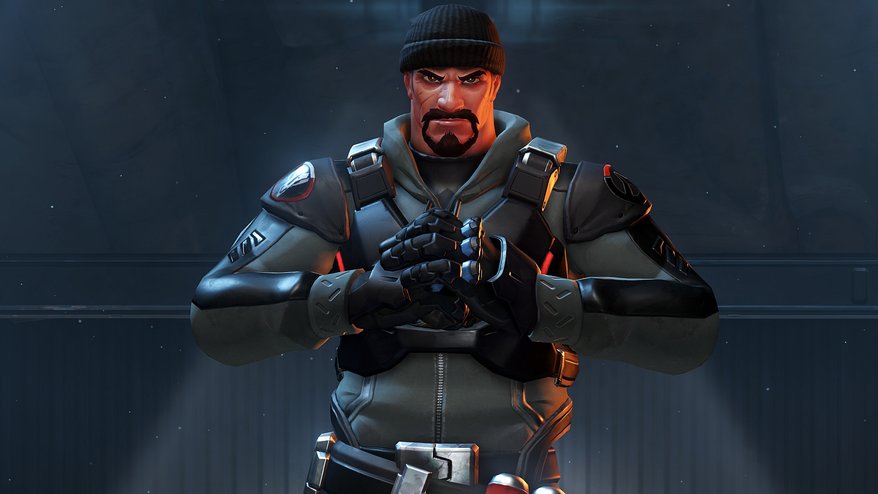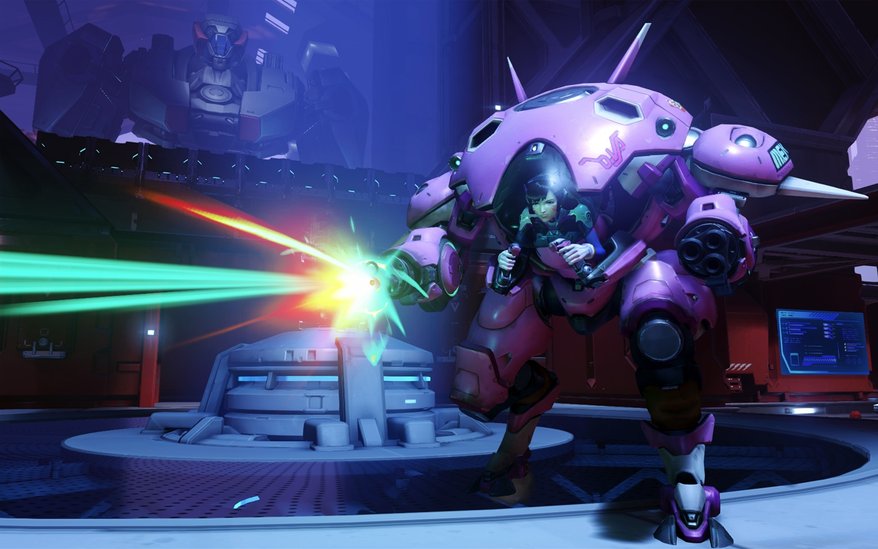Will Overwatch beta testers have an advantage?

The Overwatch beta is a tricky subject—probably the most contentious issue about the game that doesn't involve the word 'butts'. Almost eight million people wanted to get in, and only a fraction of that number actually did. Scarcity is a recipe for grief in most circumstances, and that's what happened here.
The thing about the beta drama is that nobody's wrong, per se. A complicated multiplayer game like this requires a long beta period, but that beta doesn't necessarily need to involve millions of players—it may even become harder to run effectively if that's the case. By the same token, however, that beta has been conducted very much in the public eye. Blizzard haven't placed any restrictions on streaming or video-making, giving rise to 'Onlywatch': the sense that Overwatch is a game that a few get to play while the disappointed masses press their faces up against the glass. Feeling hard-done-by in this circumstance makes emotional sense.
What isn't clear, necessarily, is whether the exclusivity of the beta is an actual problem. When the game launches, after all, nobody will have anything to complain about—unless the servers don't work, in which case you might well be justified saying that the beta needed to be larger, and run for longer.
Even so, a concern I've seen echoed in comments threads is that the Overwatch beta has created a two-tier society for this nascent competitive game. That beta players will have an inherent advantage over genuine newcomers, and that—in the most extreme cases—it's 'already too late' for anybody to compete.
I don't agree, but I understand why people feel this way. If you're looking forward to Overwatch but you have concerns along these lines, here's what I'd say to put your mind at ease:
New players will outnumber beta testers by a substantial margin
This can't be underestimated. Obviously nobody knows how many copies Overwatch will sell at launch, but millions wanted to play the beta. The game has the full force of Activision Blizzard's marketing arm behind it, too, pushing it in front of people who might not be switched-on enough to sign up for a beta test. Also, it's a new Blizzard game. It's probably going to sell a couple of copies. It'll do okay, is what I'm saying.
People who have played dozens of hundreds of hours of Overwatch already will be completely outnumbered by people who are entirely new. This means that, in the first case, you're not going to encounter them very often. The majority of matches will be between players with approximately equal amounts of experience.
Keep up to date with the most important stories and the best deals, as picked by the PC Gamer team.
Of course, it'll happen sometimes—and, yes, those players will be further ahead of Overwatch's learning curve than their counterparts. My second point concerns how much this actually matters:
One player can't win a game by themselves
Overwatch is very much a team game. It's not a MOBA, where one good player can carry the rest of their team. Nor is it as unforgiving and skill-intensive as a game like Counter-Strike, where a Global Elite-rank player can comfortably outplay whole teams of players at a lower rank than themselves.

Overwatch is a game about building and maintaining momentum. It's possible for a single good play to swing momentum from one way or another—in all of its various ways, this is what the Play of the Game system is intended to highlight—but it takes a team working together to turn that momentum swing into objectives and match victories. Put it this way: it's one thing to kill everybody and take control of a point or the payload. It's another to survive on the point or payload for long enough for it to actually matter.
That's where teams become important. Points are occupied and payloads are controlled by weight of numbers, and that means tanks and healers and fire support and so on. If you land a huge ult that clears the point and your team isn't there to help you turn it into something meaningful, it probably didn't matter (this is where the vast majority of the salt in the beta comes from, incidentally.)
I'd argue that Overwatch's structure means that the presence of one experienced player isn't likely to break the game for everybody else. Coupled with good matchmaking, the game should stabilise quickly. And while there'll certainly be players who benefit from having spent time with the game already, they'll be few in number. There is, however, one area where that potentially becomes a problem:
Ranked with full teams is likely to be the bigger issue
Overwatch's ranked system assigns solo players with other solo players and groups with groups, as you'd expect. If you're playing alone, I don't think the presence of beta players will change very much: the caveats that I've outlined above still apply.
On the other hand, ranked presents an opportunity for groups of beta players to work together. Unless there's a very wide pool of six-person squads in the game's early weeks, there's a chance that you'll run into them. And under their wheels: a good team working together can end an Overwatch match very, very quickly.
As in Hearthstone, however, there are no penalties for a ranked loss until you've climbed out of the bottom ranks—Challenger bracket, in this case. I'm hopeful that after a couple of days of play, premade groups of experienced players will have easily graduated beyond that point and left a more level playing field behind them. But it's certainly a concern, and is likely to impact the game at the beginning of each month-long season for a while to come.
On the whole, though, I'd encourage you not to worry if you've experienced the game through streams so far and you're concerned that you'll never catch up. There is a knowledge wall to be climbed when you start playing, but it's climbed relatively quickly. After that, you've got the long and more complicated matter of getting better at each character, each map, and each situation. That struggle is the same for everybody, and while beta players have a head start they won't stay ahead for long.

PC Gamer Pro is dedicated to esports and competitive gaming. Check back every day for exciting, fun and informative articles about League of Legends, Dota 2, Hearthstone, CS:GO and more. GL HF!
Joining in 2011, Chris made his start with PC Gamer turning beautiful trees into magazines, first as a writer and later as deputy editor. Once PCG's reluctant MMO champion , his discovery of Dota 2 in 2012 led him to much darker, stranger places. In 2015, Chris became the editor of PC Gamer Pro, overseeing our online coverage of competitive gaming and esports. He left in 2017, and can be now found making games and recording the Crate & Crowbar podcast.


